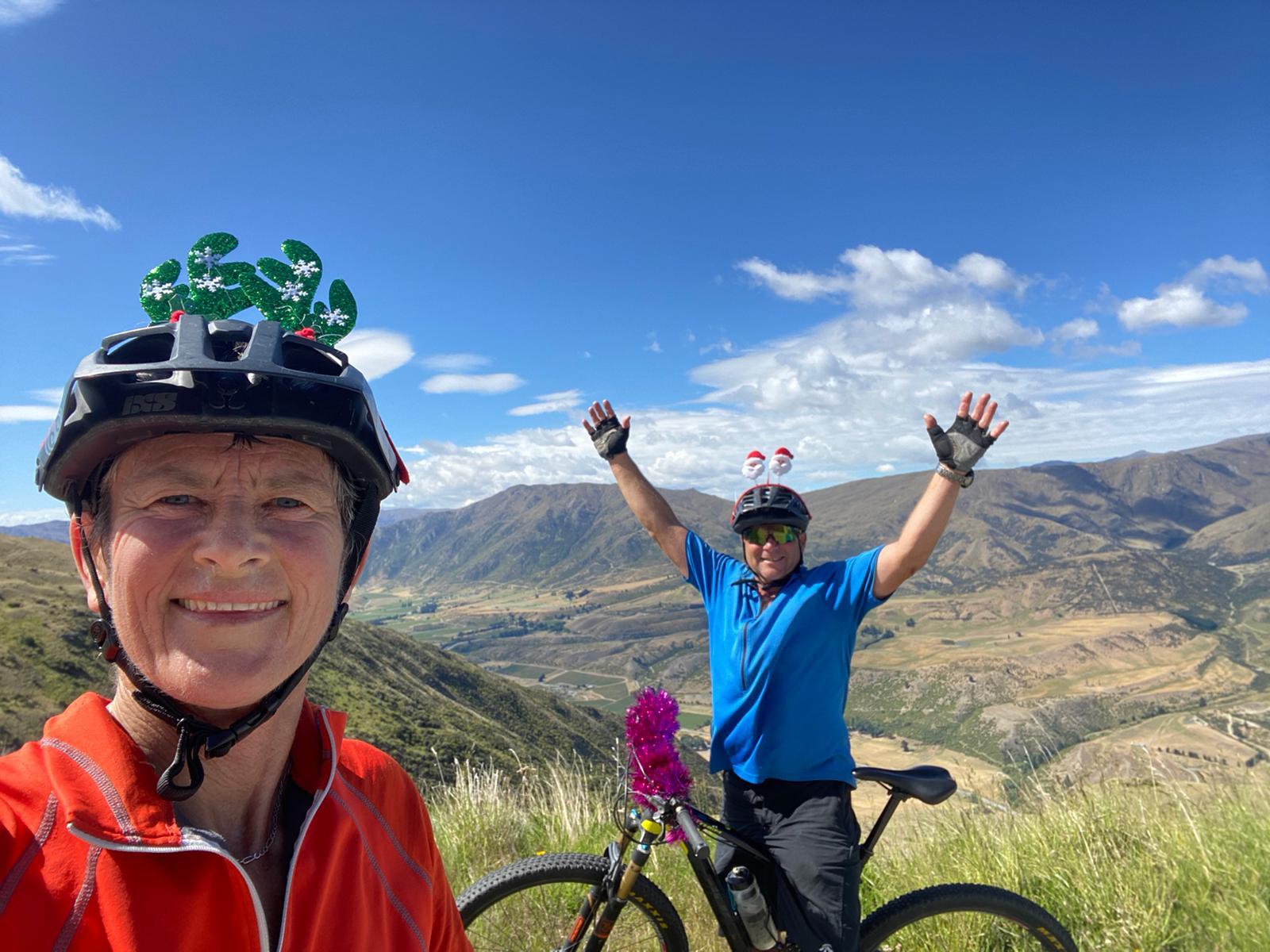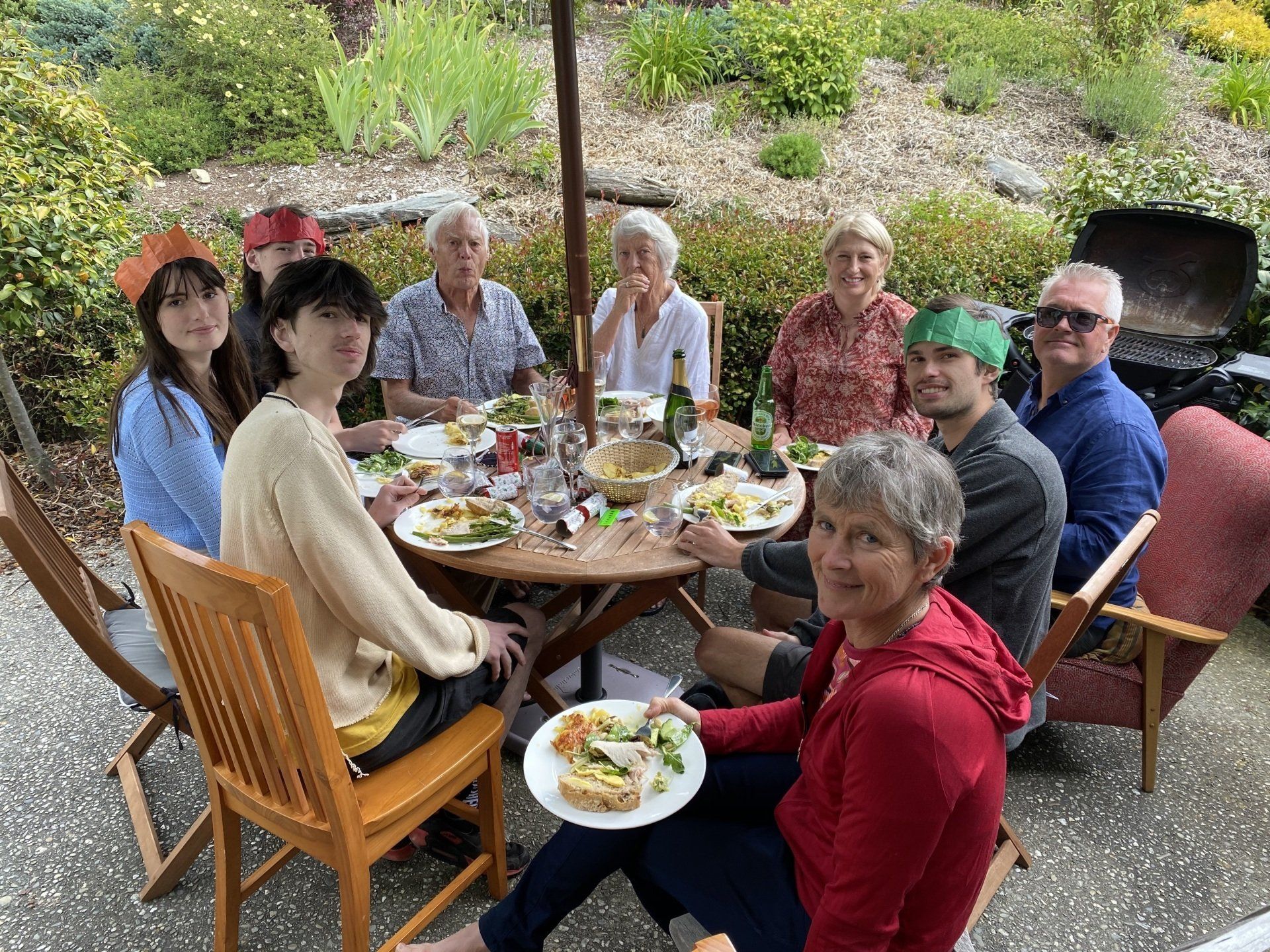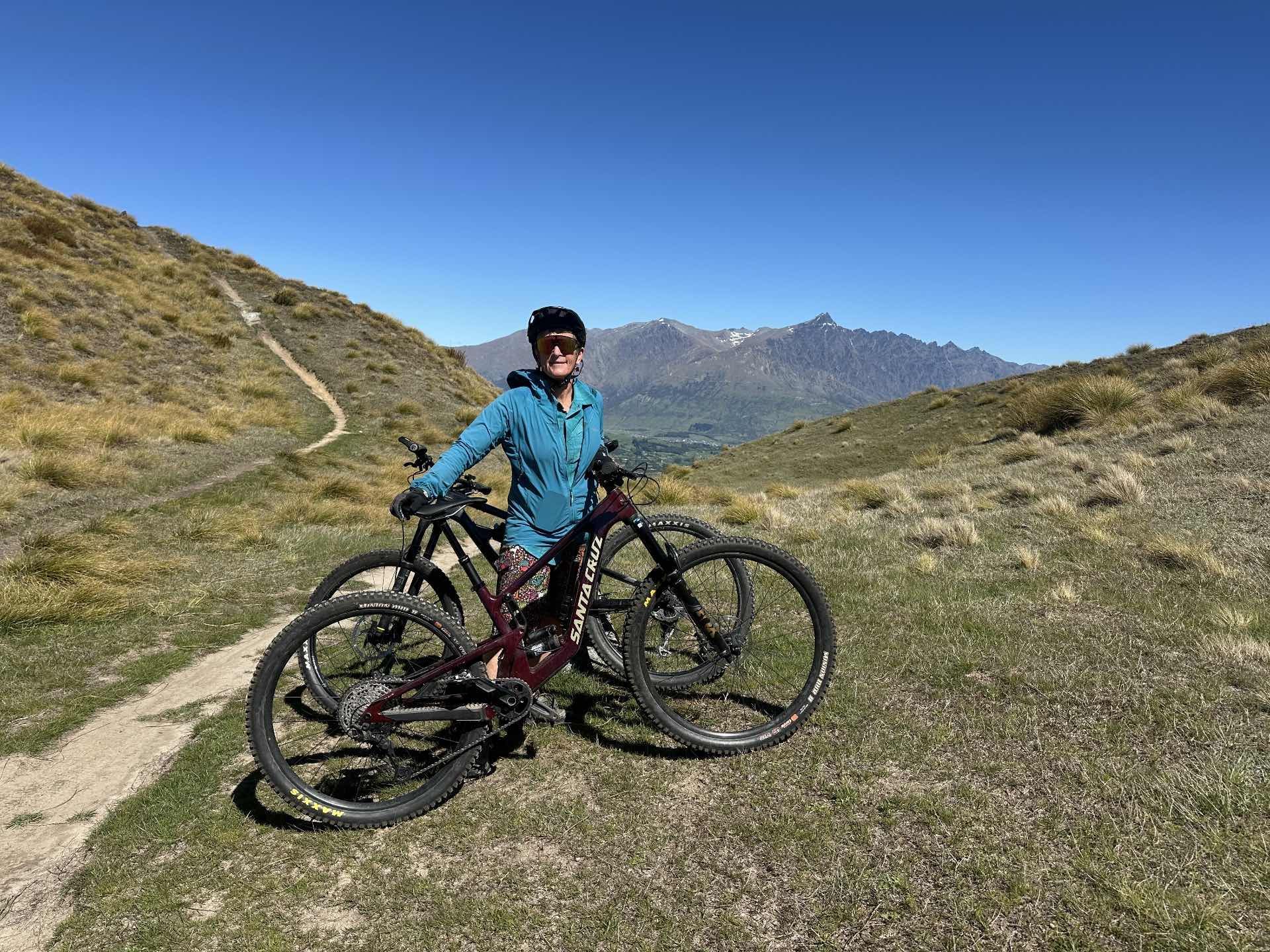A meaning of ‘whanāu’

We got to do my favourite thing on Christmas day – ride our bicycles. We rode our bicycles from home over the Crown Range to Wanaka to have lunch with some of our extended whānau. Our ‘whānau’ is quite extensive, that’s the way we like it. There are many people who come and stay with us, or live in our house while we aren’t in it, and I feel like I have a broad raft of people in my life who help keep us afloat, all in different ways.
Mum was asking me recently what I thought of the increased use of Māori on Radio NZ and on people’s use of the word ‘whānau’, including on WhatsApp groups, rather than, say, ‘family’. My response was that I like the word. Perhaps I like it because using a different word gives you the feeling that you can define what it means for you. Of course, whānau already has a meaning in Māori, but that meaning is quite broad. Further, the word is moving into common parlance in English (semantic change), with resultant further layers of meaning being added. A simple definition is that whanau is an extended family or community of related families who live together in the same area. There is an emphasis on genealogy (‘whakapapa’), and on both future and past generations. ‘Whanau’ is also used as a metaphor for close friends and associates. Another definition is that whānau can also be described as a group of people who are not related, but who are bound together to fulfill a common purpose, share a common cause or interest.
Words shift both over time through usage and are also deliberately redefined. I remember when Family Planning in New Zealand had the brilliant insight of using the word ‘partner’ to mean someone with whom one was in a long term relationship. It took away the stigma of whether people were married, or not. It took away the stigma of whether that person was of the same or a different sex. I thought it was a great leap forward. However, I also remember people in NZ at the time, and in North America where I went shortly afterwards, laughing at the usage and suggesting that it was confusing because one could also be a ‘business partner’.
What I explained to Mum was, that my use of ‘whānau’ develops my own concept of who the important people are in my life. The word ‘family’ has ‘nuclear’ connotations, particularly for those of us who grew up in late 20th century New Zealand. I am adopted (and have known that fact from a very young age), so my concept of ‘family’ has always been broader than that of a set of blood relations. In fact, I wish someone would come up with an alternative set of terms so I didn’t have to use the clunky ‘adoptive parent’ and ‘birth parent’ phrases. They are almost as bad as the term ‘stepmother’, with all its ‘wicked stepmother’ images; being part of a blended family is yet another exercise that makes one think more broadly about what ‘family’ might constitute.

I think a particularly interesting aspect of who is ‘family’, and what the role of one’s whānau is, is around ‘duty of care’. There is a societal need for people to be taken care of, particularly as they age, but also if they get into extreme difficulty at any point in their lives. Whose job is that? I get the impression that the word ‘family’ is often used to mean those who should know it is their job to step up to the plate when the shit hits the fan, but that role isn’t necessarily discussed or clarified.
The need for people upon whom to rely in illness or old age is a particularly significant issue for people who don’t have partners, or children, upon whom they can rely, or upon whom they assume they can rely! These people have to clearly identify their whānau, and discuss the roles that they need people in their whānau to fulfil. When one thinks about it, this is a much more optimal situation than the general situation of assumption. The questions that need to be asked are hard ones. ‘Will you care for me when I am old?’ ‘Will you look after my welfare when I can’t manage my own money?’ ‘Will you make the hard decisions for me if I am ill and can’t speak for myself?’ Asking those questions makes it clear whether the answers are the right ones! Asking those questions opens the door to clarifying for everyone what might be needed, and how things might work to the benefit of all concerned.
My next piece of writing will be in a new year, or in the New Year. We are looking forward to hosting some number of our whānau at pa harakeke for New Year’s Eve. At midnight we will all be stepping through a mental door into a designated three hundred and sixty-five day period which the world hopes will be different, in a better way, than 2020. As someone who is much better at trying to win a race by coming through from behind, and who gets through life by expecting less so as to avoid disappointment, I am keeping my expectations of 2021 low. My personal New Year’s wish is to get better at playing and writing music, and hopefully meet a few other like-minded people along the way. I wish for everyone who reads this, the best New Year that they can possibly have in a world that can be challenging, but surely never dull!






